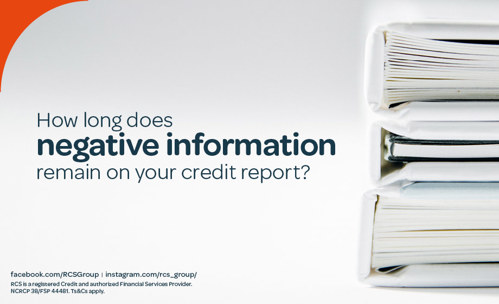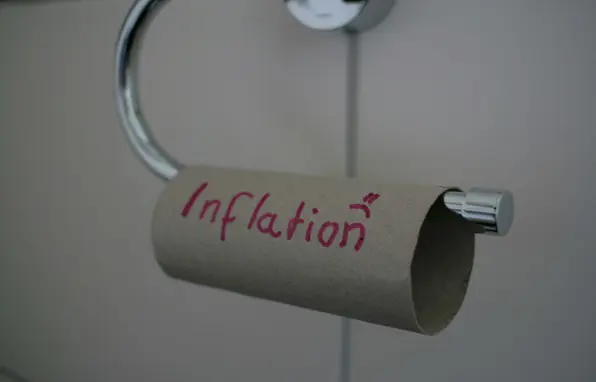How long does negative info stay on your credit report?
11 AUGUST 2023
Your credit report is a history log of all your credit information and past transactions. In the same way that it can show your positive credit history, any negative events are also recorded. Read further to learn about how long this type of information can stay on your report and how to get it removed.
Different types of information on a credit report and how long it will stay
A credit report stores many different types of information about your credit and financial history. These are;
- Enquiries - When you apply for credit, your lender does a hard enquiry to review your credit report. This enquiry shows up on your report and is recorded for one year.
- Public information - This is a general type of information, for example, if you’ve defaulted on a loan, if you’re a slow payer, or if there is any misconduct recorded on cheque accounts. It stays on your report for one year.
- Adverse classification of enforcement action - This information is any action taken by a credit provider or lender against you. For example, if you don’t pay a loan and your lender sends a letter of final demand. Or if you get a write-off, or repossessed. This information stays on your report for one year.
- Debt restructuring - Any information pertaining to debt restructuring remains on your credit report until a clearance certificate is issued.
- Civil court judgements (CCJ) - These are when a credit provider applies for a court judgement. If you fail to defend legal summons or pay a balance, a judgement is granted by the court. This stays on your credit report for 5 years, or until the balance claimed is paid in full and a letter is provided.
- Administration Orders and Sequestrations - A sequestration order is when someone is declared insolvent, or unable to pay. It stays on your credit report for five years or until a rehabilitation order is granted. An administration order is a legal document between you and your lender/creditor to pay back your debts over a period of time. This stays on your credit report for five years, or if the order is rescinded.
- Rehabilitation orders - Stays on your records for five years.
- Liquidations - If your business goes under liquidation, where your assets are distributed and the business is closed, the event will stay on your credit report for an unlimited period of time.
How to get a clean credit record
You can dispute any adverse or negative information on your credit report with the specific credit bureau that issued your report. If the information recorded is incorrect or you want to have the information removed, either log a dispute with the bureau via a call centre or through their website.
Thereafter, the bureau will require any supporting documents for your case and conduct an investigation. This process usually takes a maximum of 20 days.
The consequences of negative information
Negative information like the above that has been stored on your credit reports can affect your ability to get approved for the best credit and loan terms for you. As lenders and credit providers look at your credit report to assess your risk, too many negative events or a severe negative event can lead to a rejection of your application altogether. You might only be viable to apply for higher interest rates on a loan or credit card. This means more cost to you.
Many negative events can also affect your ability to get approved for a rental apartment or house. This is because your credit report serves as an indicator of how you manage monthly payments as well. Certain negative information on your credit report can lead to denial of employment, for example, adverse classifications or liquidations.
How to keep your credit record clean
- Pay your accounts on time each month. Set up a payment schedule so you avoid missing a payment. Learn more about the do’s and don’ts of repaying your loan.
- Pay more than your monthly required minimum. This will help you pay off debt faster and smarter.
- Make sure your credit repayments are between 20% and 30% of your income. This keeps your debt-to-income ratio low.
- Don’t ignore a letter of demand for payment. Ignoring these will only hurt your credit report more. And always comply with a summons for payment, to avoid a court judgement.
- Keep an eye on your credit report regularly so you can monitor for any negative information that is not right or to dispute them as soon as possible.



